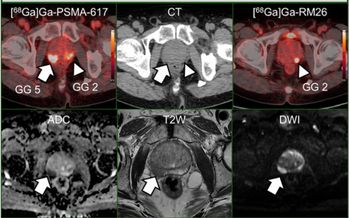
Belief in God gets blood oxygen level-dependent look
Using functional MRI to measure the blood oxygen level-dependent signal changes in the brain, researchers have found that a belief in God is linked with the primitive limbic system.
"The data strongly suggest we do our believing with our gut. They tell us we are not simply evaluating the facts," said lead author Mark S. Cohen, Ph.D., from the University of California, Los Angeles.
The limbic system involvement may explain why people hold on to beliefs long after demonstrable facts prove them wrong, Cohen said.
Researchers also found specific activity in the left hemisphere of the rostral regions that has implications for detecting deception in real-time. The study appeared in the January issue of the Annals of Neurology.
Newsletter
Stay at the forefront of radiology with the Diagnostic Imaging newsletter, delivering the latest news, clinical insights, and imaging advancements for today’s radiologists.














